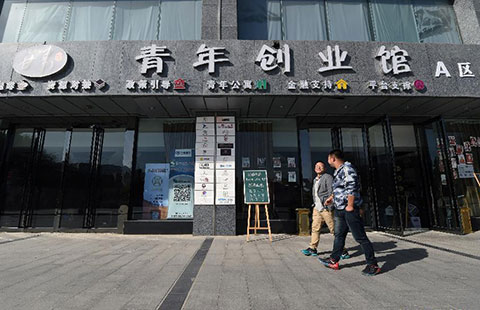China to relax loan-to-deposit ratio rules
(Agencies) Updated: 2012-07-05 14:46BEIJING -- China will scrap its 75 percent loan-to-deposit ratio limit for bank lending and adopt flexible monitoring of individual banks by regulators, domestic media reported on Thursday, in a move that would unleash more loans to support the slowing economy.
"There is an initial consensus that the compulsory rule of 75 percent loan-to-deposit ratio will be eliminated as an indicator of liquidity risks, but the China Banking Regulatory Commission will keep it in its daily monitoring of banks' performance," the Economic Information Daily paraphrased a source close to the CBRC, China's banking watchdog, as saying.
The newspaper is run by China's official Xinhua news agency.
Market talk of an imminent change to the loan-to-deposit ratio, or LDR, has swirled for months as volatility in new lending and deposit growth has surged, making it harder to assess the trajectory of credit creation in the world's second biggest economy.
Regulators have routinely said they are examining the causes of volatility in the pace of new lending, but deny they plan to relax LDR rules. CBRC Vice-Chairman Wang Zhaoxing last did so in mid-May.
The LDR is designed to tie lending closely to the level of deposits, providing a stable source of capital for credit creation and reducing bank exposure to short-term funding and leverage risks.
Too tight a cap constrains the ability of banks to lend, a particular problem in China where new lending is directed at Beijing's behest as a key component of monetary policy operations and a crucial barometer of economic activity.
"China's current loan-to-deposit ratio is already higher than mid-2009. The ratio has crimped bank lending and forced banks to raise deposit rates while the rising capital cost will hinder any cut in lending rates," the newspaper cited Lu Zhengwei, chief economist of China's mid-sized Industrial Bank.
Although the legal ceiling for LDR is 75 percent, China's Big Four banks all operate with lower ratios.
The newspaper said the CBRC earlier this year raised the ratio for the Industrial and Commercial Bank of China, the world's largest bank in terms of market cap, to 63 percent from 62 percent previously.
The ratio for China Construction Bank was raised to 70 percent, and that for Agricultural Bank of China was lowered to 57 percent. The regulator kept it unchanged for Bank of China, the smallest among the big four.
Domestic media reported earlier this week that the Big Four banks, which typically account for 30 percent to 40 percent of total lending, extended less than 200 billion yuan ($31.7 billion) in new loans last month.
That implies total new yuan lending might be smaller in June than May's 793 billion yuan, leaving Beijing at risk of undershooting its target for money supply growth - effectively tightening credit conditions even as the government loosens monetary and fiscal policy to underpin economic growth.
The People's Bank of China is scheduled to announce money and credit data for June from July 10 onwards.
- Golden Week saw golden rise for Chinese housing market
- Chinese tech companies gearing up for Russian demand
- Stocks surge on PBOC's move to expand relending plan
- Central bank to expand relending pilot program
- iPhone 6s challenged by old models in China?
- China to draft antitrust guideline for auto sector
- China nears annual affordable housing target
- SriLankan bags an airline 'Oscar'















